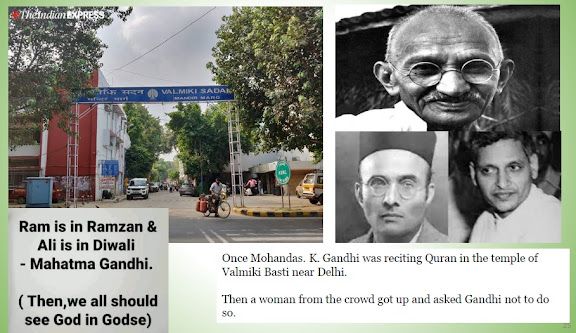Isa Upanishad - Chapter 2: Work and Self
Everyone wishes to live for long. A hundred years of life is the maximum period for any human being.
For worthwhile life, a man should perform his work. Only by clinging with his work, a man can achieve his desire to live for long years.
Work can be good or bad. But man should do only good work which alone will give him longevity, happiness and well being. Such work will not fetch the person any salvation from further births, as his work is being performed with desires to live long with health and wealth.
Such an outlook is antithesis of renunciation which alone can make one to realize the Soul or Self which is the ultimate purpose of life leading to salvation i.e. birth-less state.
‘Live one hundred years on this earth by performing action. With such desire, one can cling to the work and not in any other way’ is the plain meaning of the second stanza.
The next verse is to criticize those who perform work only to live longer and who do not apply their mind to realize the True Self within.
Then, what will happen in such a situation?
Such person after giving up the body will end up in the worlds of devils which are covered by blinding darkness to suffer.
‘O, Man, you have actually killed the Self, while living and while doing your work. Hence, you are destined to this terrific darkness of devils’ worlds!’ is the plain message of the third verse.
Mere living long should not be the aim of human being, but, he should endeavor to realize the soul by real knowledge which is all Bliss. By this, the soul after giving up the body will not enter the worlds of devils with all their blinding darkness.
Darkness is symbolic of Ignorance and non-realization of Self or Soul is akin to Ignorance as against Light which is symbolic of True Knowledge.
True Knowledge means the realization of Self or Soul in all its splendors and properties.
For worthwhile life, a man should perform his work. Only by clinging with his work, a man can achieve his desire to live for long years.
Work can be good or bad. But man should do only good work which alone will give him longevity, happiness and well being. Such work will not fetch the person any salvation from further births, as his work is being performed with desires to live long with health and wealth.
Such an outlook is antithesis of renunciation which alone can make one to realize the Soul or Self which is the ultimate purpose of life leading to salvation i.e. birth-less state.
‘Live one hundred years on this earth by performing action. With such desire, one can cling to the work and not in any other way’ is the plain meaning of the second stanza.
The next verse is to criticize those who perform work only to live longer and who do not apply their mind to realize the True Self within.
Then, what will happen in such a situation?
Such person after giving up the body will end up in the worlds of devils which are covered by blinding darkness to suffer.
‘O, Man, you have actually killed the Self, while living and while doing your work. Hence, you are destined to this terrific darkness of devils’ worlds!’ is the plain message of the third verse.
Mere living long should not be the aim of human being, but, he should endeavor to realize the soul by real knowledge which is all Bliss. By this, the soul after giving up the body will not enter the worlds of devils with all their blinding darkness.
Darkness is symbolic of Ignorance and non-realization of Self or Soul is akin to Ignorance as against Light which is symbolic of True Knowledge.
True Knowledge means the realization of Self or Soul in all its splendors and properties.



Comments